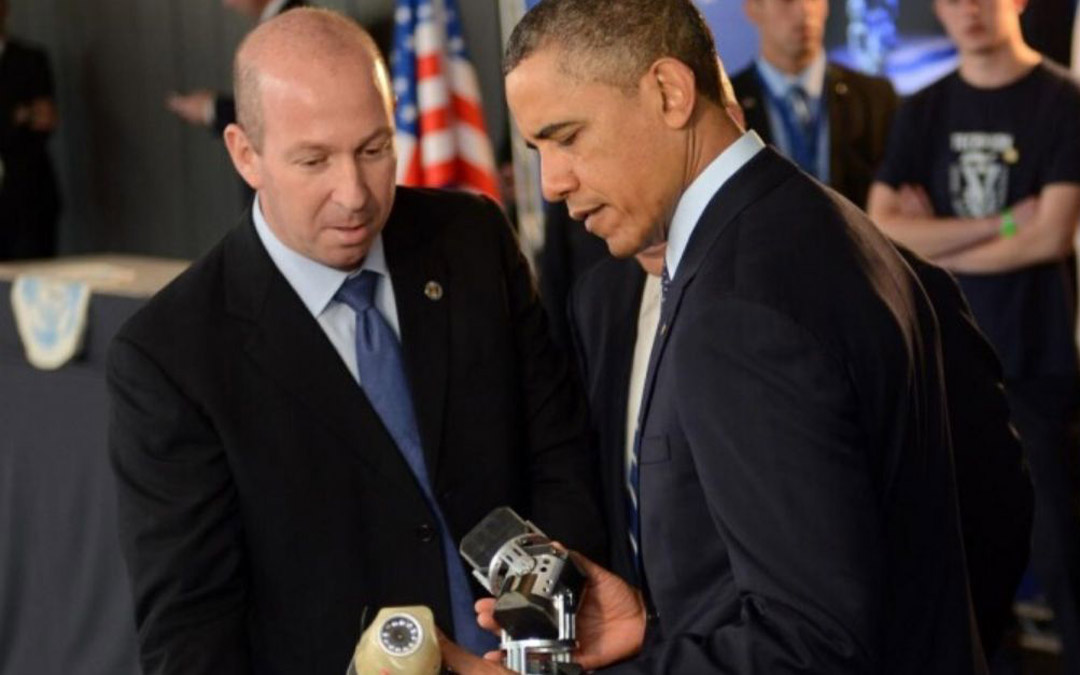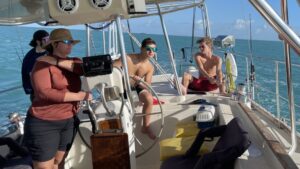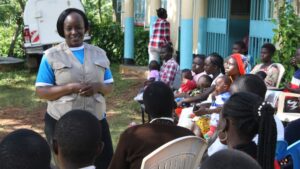Dr. Alon Wolf, one of the world’s leading experts in the robotics field, was recently appointed vice-president of The Technion-Israel Institute of Technology in Haifa. He will speak about “New Frontiers in Robotics Technology” on Monday, Nov. 18, at 6:45 p.m. at Pikesville’s Beth El Congregation.
Wolf is internationally known for his development of transformative robotic snakes, designed for use in detecting tunnels in southern Israel and in natural disasters, as well as in surgical medicine.
Wolf serves as founding director of the bio-robotics and bio-mechanics laboratory at the Technion Faculty of Mechanical Engineering, as well as director of Technion’s F.I.R.S.T. (For Inspiration and Recognition of Science and Technology) outreach project, which encourages youth to study and pursue careers in engineering, science and technology.
The free event is co-sponsored by Beth El, the synagogue’s Israel Affairs Committee and American Technion Society Baltimore. A light dinner will be served at 6 p.m. before Wolf’s talk.
Brandon Chiat, Beth El’s digital media manager, recently spoke with Wolf about his work.
What can audience members expect from your Nov. 18th talk?
The robotics revolution is happening in real-time, as we talk right now. So if you can’t beat them, join them. People cannot ignore the digital and robotics evolution. If you’re not exploring this trend, you’re going to get left behind.
How did you get into robotics?
I was always interested in learning how things worked. I used to take apart my father’s camera and put it back together all the time. I found something I loved, and I knew I would devote my life to it. So it was quite natural for me to study electronics and robotics, first in high school and later at The Technion, where I earned my bachelor’s, master’s and Ph.D. degrees in mechanical engineering.
My romance with robotics began at Technion. Before graduate school, I designed technology for the first version of the F-16 fighter plane. My current work helps Israel’s Olympic athletes improve their performances. At the most elite levels of athletic competition, the difference between first and fourth place is sometimes just a few tenths of a second or a minor change in arm placement. It’s the marginal gains that make the difference. So our team’s current research at The Technion, which is now the Israeli Center for Olympic Research, provides our athletes with the data and tools necessary to increase their results by those marginal but crucial percentages.
What is the robotic snake, and what are its real-world applications?
After [earning] my Ph.D., I became a professor at Carnegie Mellon University in Pittsburgh, where I first met and collaborated with Dr. Howie Choset, who created a comprehensive program in snake robots. We developed our original snake robot for urban search-and-rescue operations, and it was first used at Ground Zero after the Sept. 11th terrorist attacks.
Later, Dr. Choset and I co-founded a company called MedRobotics to develop the Flex Robotic System, a miniature version of the search-and-rescue snake robot, which can reach body cavities beyond the surgeon’s direct line of sight, especially in a patient’s head and neck.
Why do you think The Technion and Israel have been the source for so many technological inventions?
Israel can be a very challenging geopolitical environment, which forces Israelis to be creative in their solutions to many problems. There’s a good reason why Israel is known as the “Startup Nation” — necessity is the mother of invention, as they say. We live in a very unfriendly environment, so we needed a university that could produce technology for our civil society and military. The Technion was the first technical university in this part of the world and has become a “Top-100” global university, a true center of innovation, the M.I.T. of Israel. At every critical junction in Israeli history, Technion graduates have produced game-changing technology — from micro-electronics like USB memory sticks to the Iron Dome [air defense system].
Israelis are endlessly curious and are not afraid of failing. After all, part of Jewish tradition is to ask questions. [The Technion] encourages our students to ask questions and challenge themselves. We don’t view failure as a bad thing, it’s not a shameful thing. In some cultures, failure is embarrassing. In Israel, our mentality is: OK, you failed. Now try again — and keep trying — until you’re successful.
Why is it important to encourage young students to study and pursue careers in STEM, or science, technology, engineering and math?
Lionel Messi — perhaps the greatest soccer player of all-time — didn’t start playing when he was 20. Messi became the greatest because he began practicing and loving the game at an early age. We need to inspire young children to see the beauty of science and engineering.
To maintain Israel’s status as the “Startup Nation,” we need to nurture the next generation of inventors who will develop new technology and medicine that benefits the global population.
So the goal of F.I.R.S.T. is to have more students pursue a bachelor’s degree in a STEM field. To do that, we must hook them at an early age by making science fun through robotics competitions. To date, over 15,000 Israeli students, from first graders to high school seniors, have participated in a F.I.R.S.T. robotics competition. Our team just won a silver medal in the World Robotics Championship in Dubai. The Israeli flag was raised in an Arab country, and President [Benjamin] Netanyahu personally congratulated the team when they returned.
What’s your advice to aspiring scientists?
We don’t need every young student to become a scientist. We need lawyers. We need writers. We need artists, musicians and actors. Good engineers are not just inspired by science; they’re inspired by the arts as well.
But if a young person likes to take things apart and see how they work, wants to understand the physics of things, then we must encourage them to pursue those passions to its fullest potential by studying STEM. Young students should absorb as much information as possible: take all the courses you can, read all you can, ask all the questions you can. Young STEM students must be active in their pursuit of knowledge.
What emerging trends or new technologies excite you the most, and how will they impact everyday people?
We live in an era of unprecedented innovation. Technologies are maturing at an exponential rate. The industrial revolution was about steam power. Then, the assembly line revolutionized production. Then, automation through machines and robots made for even more sophisticated assembly lines.
We are now approaching the fourth revolution: the singularity. A point where many technologies that have been developed in parallel — the Internet of Things (IoT), big data, artificial intelligence (AI), and robotics — will converge and revolutionize the way human beings live, learn and work.
For information, visit bethelbalto.com or https://ats.org/offices/american-technion-society-baltimore-chapter/.





